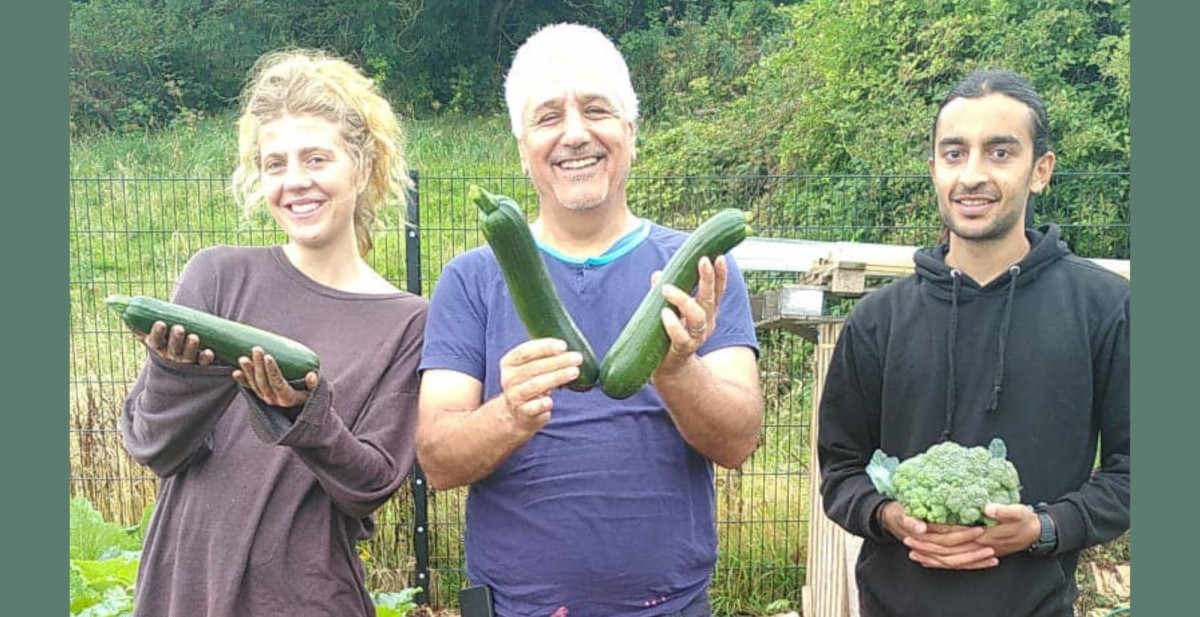
Volunteers growing food.
Find out more: https://www.cwin.org.uk/
Central and West Integration Network is a small, vibrant community organisation in the centre of Glasgow, working predominantly with asylum seekers and refugees. We have been working towards food security since 2010 and have developed our services incorporating the Dignity Principles. Currently we offer a community food hub and a community meal. We aim to give the people who attend these services as much opportunity as possible to participate, contribute and develop their talents and skills.
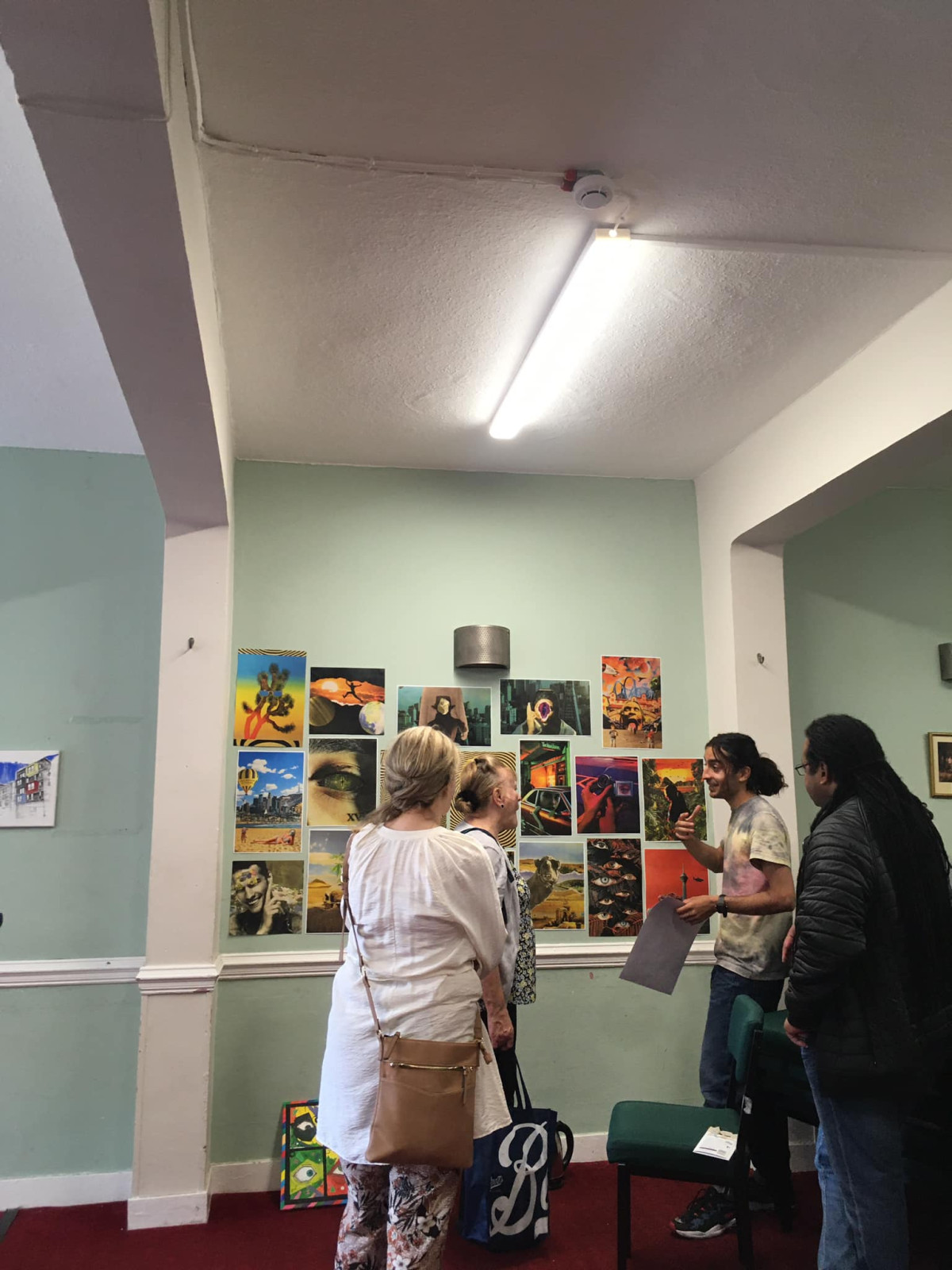
Art exibihition from CWIN volunteer
A sense of control
Many of our community members are in the asylum system. Due to the unrealistically low allowance they live on, they will always be dependent on additional support such as food banks to meet their basic needs. Like many other community food projects we ran a foodbank until quite recently, where people were handed a parcel of food. They had little choice over what they received and often the items did not meet dietary or cultural needs. At the beginning of 2022 we changed our operating model and now run a food hub. Our community members pay a small amount of money to be a member, but they can choose which food they take home. The income from the membership fee is used to purchase culturally relevant food based on consultations with members. If someone has no money for one week, they can still use the food hub for free, no questions asked.
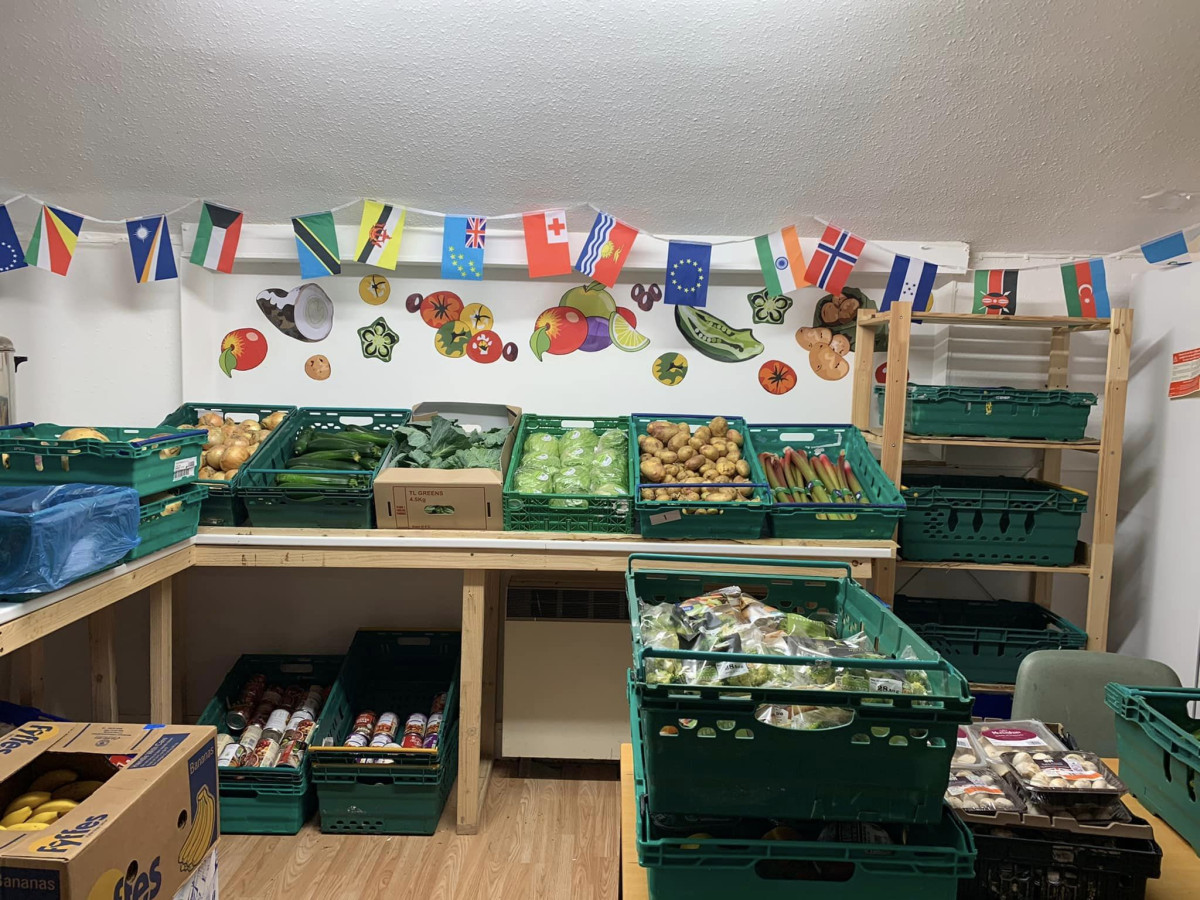
Food Hub
Able to take part in community life
On the same day as the food hub, we run a community meal. It is a social space with a low threshold. We serve a hot meal, teas and coffees. We have board games, table tennis and foosball. A volunteer team is dedicated to welcoming people, giving them information and helping with any life issues or signposting to our ‘Drop-In’ for additional support. We often invite guest speakers or put on cultural events and celebrations at the community meal. Immediately before the meal we have a knitting group that is run on a drop in basis and an exercise class follows the meal in the same hall. There are many volunteer roles available at the meal and the food hub and we keep the barriers to becoming involved as low as possible. Anyone interested can usually try out the volunteer role the same week. As we have a limit on the number of people we are allowed to let into the kitchen, we have ‘takeover’ slots for anyone who is interested in cooking for the community meal. Our chef team will help the person to scale up their recipe and cook it for the community so we often serve food from the cooking traditions of our community. People can therefore opt into a variety of community activities, including helping to run our services and people who attend will often be welcomed by someone who shares a similar experience or even the same language.
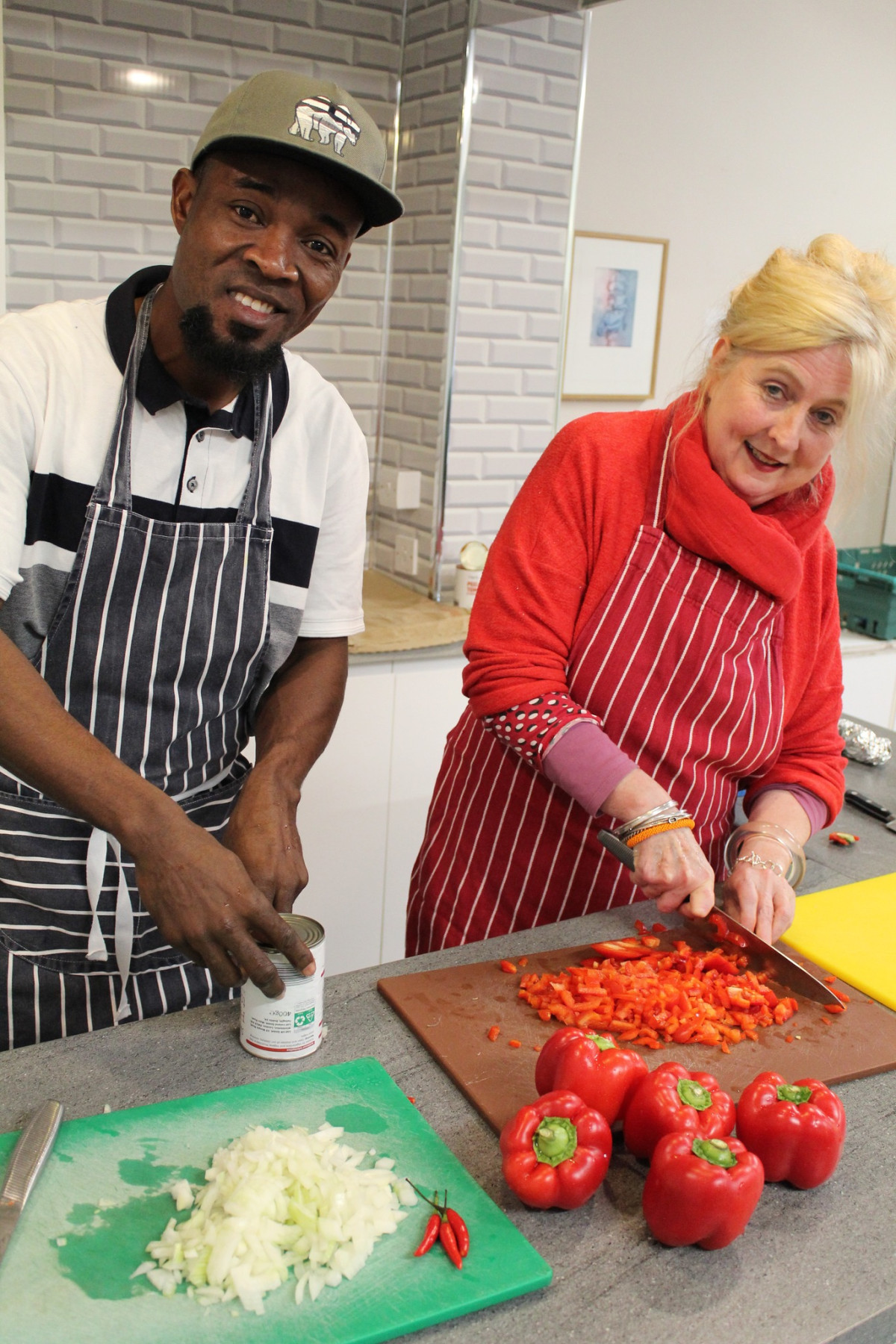
Volunteers cooking together
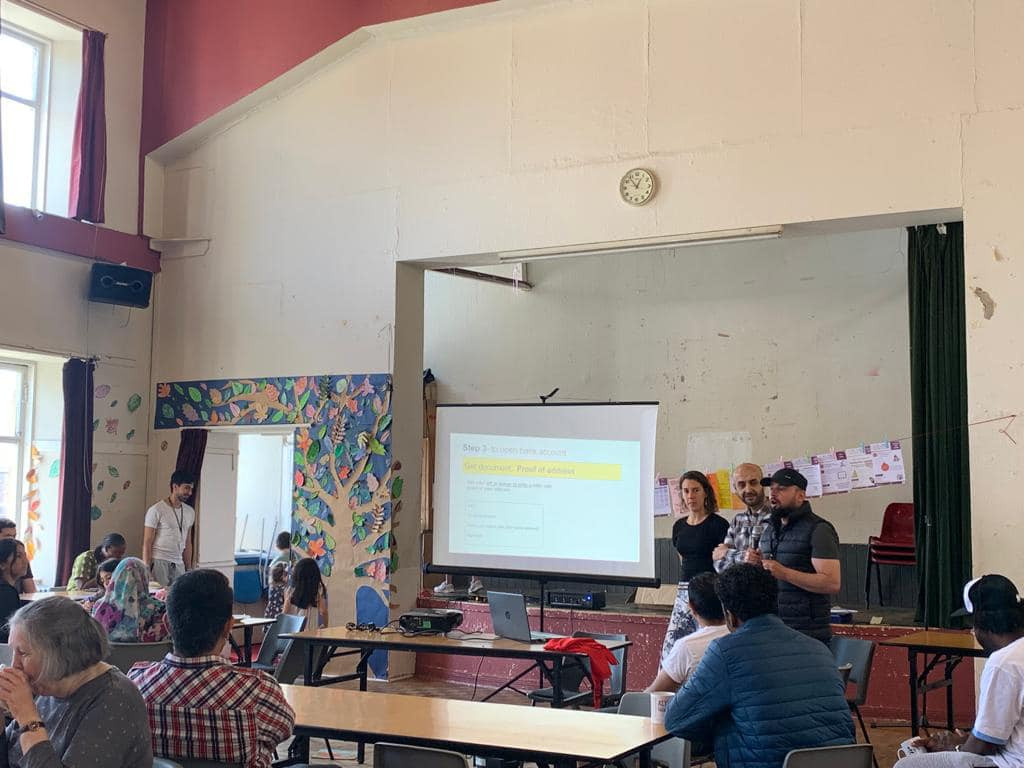
Community members running a presentation on opening a bank account session
One of the biggest problems we have is that the supply of the food at the food hub is limited, because it is based on donations of supply chain surplus. This means that the first people to enter the food hub have a better variety to choose from. It creates a competitive situation among our community members and some of them try to resolve this by arriving earlier than the others. We don’t want to encourage and can’t monitor people queuing long before the beginning of our service, so often the people pursuing this strategy start arguing about who arrived first once we start registration. To avoid queuing, we open the registration at the beginning of the community meal and hand out waiting numbers. People can then take part in the meal knowing that they have reserved their space in the queue. It is work - in - progress as we still sometimes have disagreements at the beginning of the registration.
Exercises 2 to 4 helped us to embed an understanding of the Dignity Principles in our organisation. We have done these on a few occasions at workshops and they help to make the dignity principles the baseline of how our services should operate. The essence of the observation exercise (observe and reflect) is probably the most helpful in resolving this particular problem. It’s not that one of us sat down with a clipboard to do this exercise. It’s more about being tuned into the Dignity Principles and observing and reflecting on an ongoing basis and consulting with people the very moment the problem occurs and - where possible - implementing their suggestion immediately.
“Make sure that the community you serve is able to help run the services, for example through volunteering. Involve your community in the changes or improvements to the services you are planning. Often community members will have the best ideas on how to implement the dignity principles in detail” – Vivien Opiolka, Development Worker
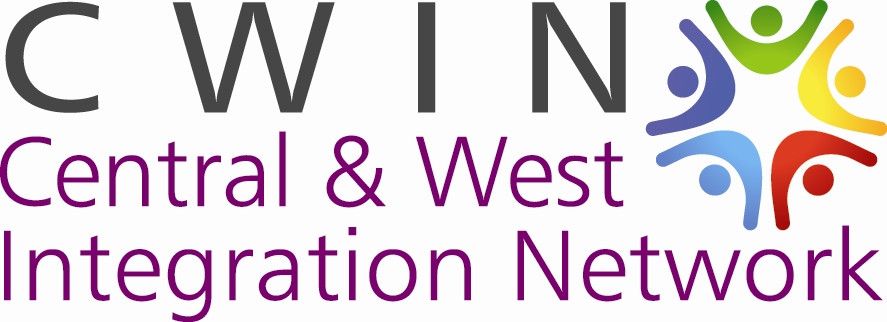
Central & West Integration Network logo